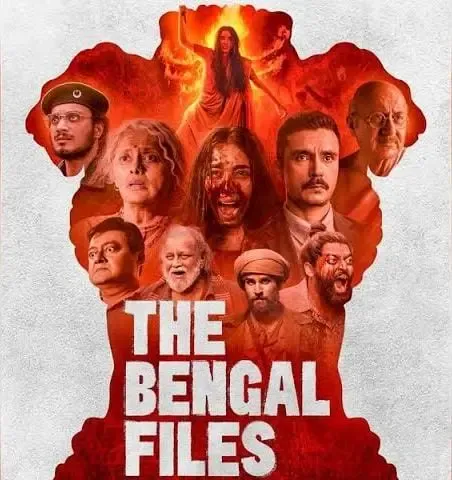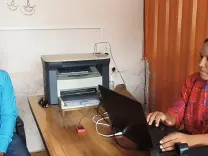Why is FWICE Supporting the Makers of 'The Bengal Files'?

Synopsis
Key Takeaways
- FWICE advocates for the screening of 'The Bengal Files'.
- The film is certified by the CBFC for release in India.
- FWICE highlights the importance of freedom of expression.
- Undeclared bans challenge the legal framework of film exhibitions.
- Creative liberty is vital for filmmakers to share important narratives.
Mumbai, Sep 8 (NationPress) The debate surrounding the recently launched film 'The Bengal Files' continues to escalate. In a significant development, the Federation of Western India Cine Employees (FWICE), representing 36 affiliated associations and numerous members within the film and television sectors, has voiced its apprehensions regarding the unannounced prohibition on the film's theatrical screening in West Bengal.
The organization asserted that the film has received the necessary certification from the Central Board of Film Certification (CBFC), thus permitting its release across India. However, the unofficial ban contradicts established laws and undermines the regulatory framework for film exhibitions in the country.
FWICE emphasized that such restrictions, whether overt or covert, infringe upon the constitutional right to freedom of expression and impede the artistic freedom of filmmakers who invest their talent, resources, and dedication to narrate significant stories. The suppression of a film without an official order is not only inequitable but also sets a perilous precedent for the future of Indian cinema.
The federation urged the government to promptly acknowledge the ban and take all necessary actions to ensure that the film is screened throughout West Bengal without any hindrance.
Key members of FWICE stated, “We call upon all theatre proprietors in West Bengal to commence screenings of 'The Bengal Files' without delay. The film embodies substantial investment, effort, and artistic dedication from the filmmakers, and audiences deserve the chance to watch it freely. We support the Producers of 'The Bengal Files' and implore all producer associations nationwide to voice their objections against this unlawful ban.”
'The Bengal Files' draws inspiration from the Direct Action Day, which occurred on August 16, 1946. It depicts the harrowing events of one of India's darkest periods, marked by brutal killings during riots in Kolkata. The Direct Action Day riots instigated a series of conflicts between Muslims and Hindus/Sikhs in Noakhali, Bihar, and Punjab.








